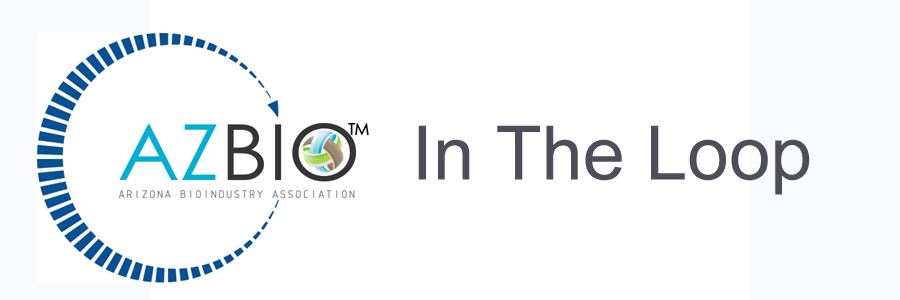The University of Arizona College of Medicine – Phoenix will graduate its 500th physician Monday, May 6, during commencement ceremonies at the Orpheum Theatre in downtown Phoenix.Continue reading
Author Archive: AZBio
UA College of Medicine – Phoenix Partners with Space Tango to Test Diagnostic Tool in Space
Center for Applied NanoBioscience and Medicine will Integrate Its Health Platform in the Company’s Automated CubeLab System Continue reading
HTG Molecular Expands Agreement with Illumina to Include Autoimmune, Cardiovascular, and Fibrosis Disorders and Diseases
Amendment allows for the development of IVD test kits compatible with Illumina technologyContinue reading
FDA Approves Genentech’s Kadcyla for Adjuvant Treatment of People with HER2-Positive Early Breast Cancer with Residual Invasive Disease After Neoadjuvant Treatment
– Approval based on data showing Kadcyla cut the risk of disease recurring by half compared to Herceptin in the adjuvant setting for specific patients with HER2-positive early breast cancer –
– Application approved under FDA’s Real-Time Oncology Review pilot program –Continue reading
First-of-its-kind microbial nursery to open on May 8th
The world’s first microbial nursery is Ferran Garcia-Pichel’s brainchild, a mobile lab designed restore arid lands in the Southwest. Garcia-Pichel is director of the Biodesign Center for Fundamental and Applied Microbiomics and professor in ASU’s School of Life Sciences. His plans to grow microbes and prevent dust pollution earned him recognition last fall as a finalist in the Governor’s Celebration of Innovation.Continue reading
Mayo Clinic, ASU select six startups for inaugural MedTech Accelerator cohort
The accelerator, which is part of the Mayo Clinic Arizona State University Alliance for Health Care, was designed specifically for early stage medical device and health care technology companies looking to take their business to the next level. Two AZBio Member companies, Life 365 and Hexoskin, are in the inaugural cohort.Continue reading
Roche launches new VENTANA HER2 Dual ISH companion diagnostic test for breast and gastric cancer patients eligible for targeted therapy
- Nearly 2.1 million new cases of breast cancer are diagnosed worldwide each year, and more than 620,000 people will die from the disease.1 About 15 to 20 percent of women diagnosed with breast cancer are HER2 positive.2
- The VENTANA HER2 Dual ISH DNA Probe Cocktail assay3 aids in identifying breast and gastric cancer patients eligible for the targeted Roche drug Herceptin (trastuzumab), providing fast results with widely available laboratory instruments.
- This approval supports Roche’s personalized healthcare strategy to provide treatment to patients who can benefit most from a specific medicine.
Autism symptoms reduced nearly 50% two years after fecal transplant
Recent research suggests our gut microbiomes affect brain communication and neurological health. Worldwide, interest is growing in the idea that changes in normal gut microbiota may be responsible for triggering various conditions. At ASU, a research team is exploring using the microbiome to treat autism symptoms.
The team of ASU researchers, Rosa Krajmalnik-Brown, James Adams, and Dae Wook Kang, were inspired to explore the gut-brain connection as it relates to autism symptoms and gastrointestinal issues.
Continue reading

